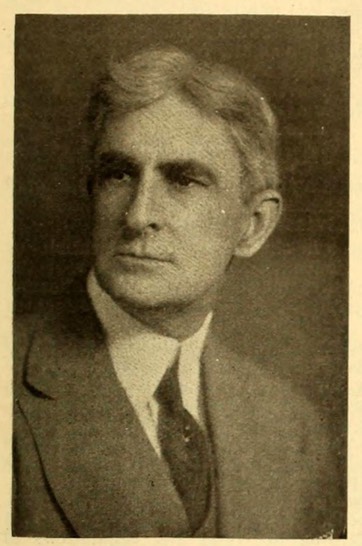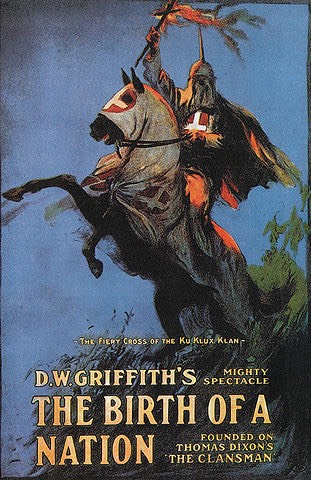I once reported that “Under the Moons of Mars” was the first piece of serialized fiction offered to readers of the Lovewell Index in 1913, giving folks in rural Jewell County, Kansas, their first glimpse into the fevered science fiction daydreams that would preoccupy a young century.
Edgar Rice Burroughs’ hero, John Carter, became the prototype for Buck Rogers, Flash Gordon, Superman, and Luke Skywalker leading a host of characters across the barrier of interstellar space to seek their destiny on strange new worlds. I was fascinated by the idea that Thomas Lovewell may have gotten a peek at a work that inspired, among countless others screenplays, the one for “Avatar,” the highest-grossing movie of all time, produced nearly two hundred years after his birth.
It’s an amusing thought, but probably wrong. I had my newspapers mixed up, and it was a different Jewell County publication that ran “Under the Moons of Mars,” a work credited to Norman Bean, a pen name for fledgling writer Edgar Rice Burroughs. The first book to be parceled out in weekly chunks to subscribers of the Index was actually Thomas Dixon’s novel, “The Root of Evil,” which turns out to be an even more interesting as well as a politically volatile choice.

Born while the Civil War was still raging, Dixon is remembered today as the author of “The Clansman: An Historical Romance of the Ku Klux Klan,” the second volume of his Klan trilogy and the basis of D. W. Griffith’s “The Birth of a Nation.” A North Carolinian who did not condone slavery or excuse it, Thomas Dixon nonetheless believed wholeheartedly in maintaining racial purity, and in denying full political equality to African Americans (He also didn’t want women getting the vote). A man of interesting contradictions, he did not care for the modern Klan, which his own writings had helped to waken, denouncing it as unnecessarily violent and racist, but looked back fondly on the old Klan that sprang up during Reconstruction (His father and an uncle had been members) as gallant protectors of Southern womanhood.

When Dixon’s writing appeared in the local paper in 1913, Jewell and Republic counties were still home to G.A.R. members who had signed up to put an end to slavery, Thomas Lovewell among them. Lovewell Index publisher Rev. R. L. Turk might have been run out of town if, instead of “The Root of Evil" he had chosen the first book in Dixon’s Klan trilogy, “The Leopard’s Spots,” with its most famous passage often quoted by white supremacists:
One drop of Negro blood makes a Negro. It kinks the hair, flattens the nose, thickens the lip, puts out the light of intellect, and lights the fires of brutal passions. The beginning of Negro equality as a vital fact is the beginning of the end of this nation's life. There is enough Negro blood here to make mulatto the whole Republic.
The book selected for serial publication in 1913, “The Root of Evil,” is from another of Dixon’s trilogies, said to be his three-part diatribe against the evils of socialism. I suspect that most people who call it that have not read the book. If socialism was intended to be the great evil of the title, its root is evidently the shameless greed of unfettered industrialist capitalism, personified by a loathsome millionaire named John C. Calhoun Bivens. Bivens, described by the author as “the little razor-back scion of poor white trash from the South,” takes an idealistic lawyer, the aptly-named James Stuart under his wing, and like the prototypical villain of a Bond film, lays out his long-term scheme.
The world is waiting," he continued, "for its real master—not a multi-millionaire, but the coming billionaire. The rulers of the old world fawn on our financiers and envy their power. But the king of kings is yet to come. If I had been ready in this panic with the capital I have to-day I could have made a billion. With the power and experience I now have and one such man as you on whom I can depend I'd double my fortune every year. That means that in five years I will be a billionaire, and only forty-two.
"Think for a minute what that means if you can! A billion dollars will double itself in seven years. At forty-two I'd be worth a billion. At forty-nine I'd have two billions. At fifty-eight I'd be worth four billions—and just old enough to really begin to do things. That is on the supposition that my money only increases by its banking power, which is the smallest way to look at it. In seven years I'd start with a billion preparing for the grand coup of the next panic. It always comes within a“decade. The man who enters a panic with one billion dollars in cash if he had the nerve, the daring, and the brains can emerge with fifty!
"Give me one billion answerable to my will alone and I can rule this nation. Give me four billions and no king or emperor, president or parliament on this globe will dare to make peace or war without consulting me. The power which Cæsar or Napoleon wielded will be child's play to the power within my grasp. When such a man lives the world will know for the first time in history the might of a real master.
"How long could this republic stand if such a man should see fit to change its form? Even now our petty millionaires buy courts and legislatures, and the control of great cities. But the new king would know no limitations to this power. He would make the laws, shape and dictate public opinion, subsidize the church and the schools, direct the courts, control all industries, direct all banks, fix the wages of labour, the prices of all goods, regulate supply and demand and absorb all profits.
As we put behind us an election cycle which saw hundreds of millions of dollars anted up by corporations to elect the lawmakers they wanted, a time when the billionaire Koch brothers spent further millions on TV ads desgined to convince Kansans that they can’t be evil (Look - our employees smile for the camera!), we can’t say we weren’t warned.
Even a notoriously racist, sexist writer with his heart buried in a sentimental past, saw it coming a hundred years ago.